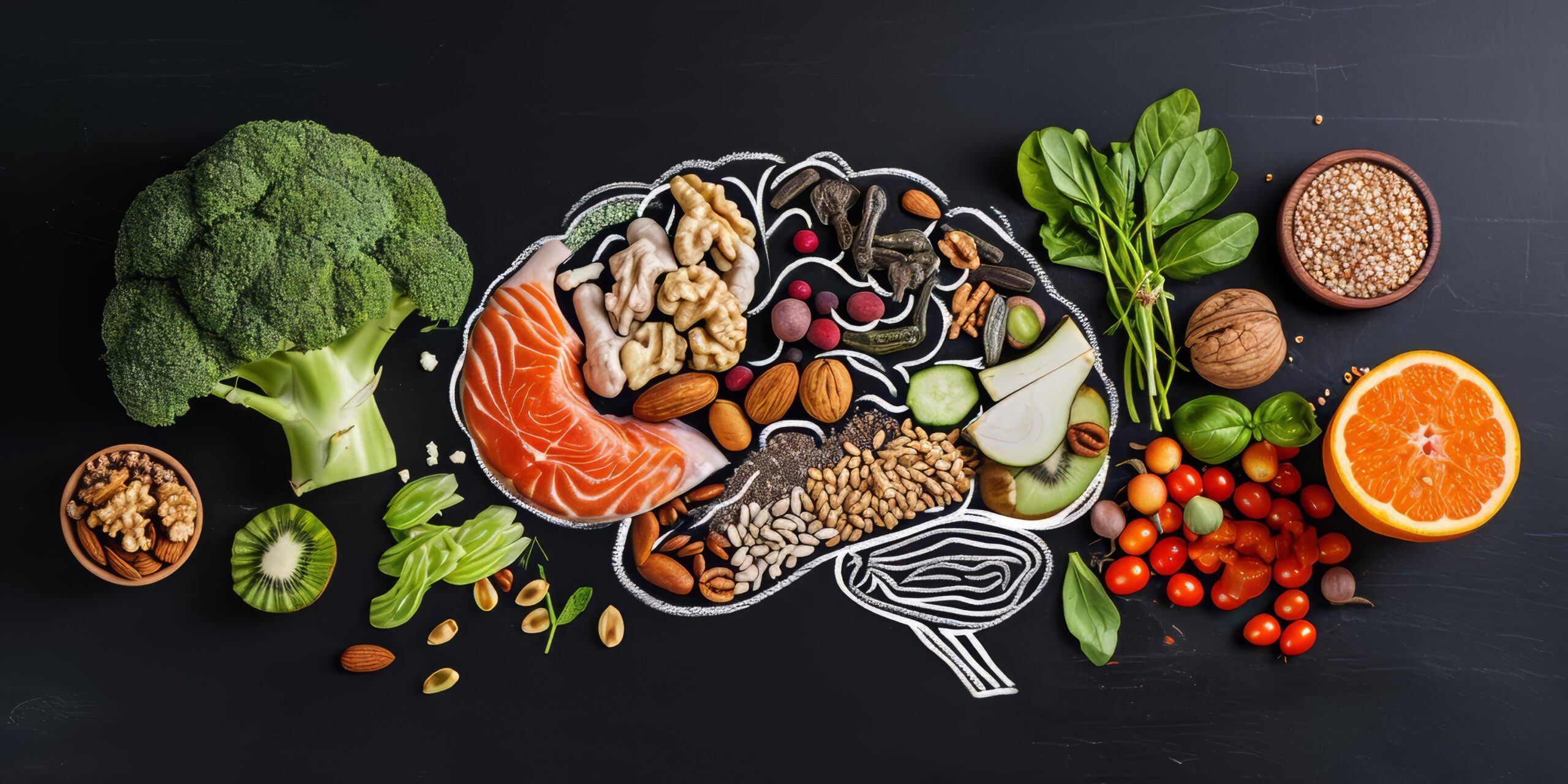Diet’s Influence Goes Beyond “Healthy Foods for Your Brain”
The connection between diet and mental health is undeniable, but it’s far more complex than simply eating “healthy foods for your brain.” Diet influences mental health through diverse mechanisms—ranging from altering neurotransmitter pathways and reducing inflammation to shaping the gut microbiome and enhancing mitochondrial function. Understanding these varied pathways is key to unlocking diet’s potential as a therapeutic tool for mental health conditions.
Emerging evidence suggests that dietary interventions—whether through the addition of specific nutrients, elimination diets, or more structured approaches like the ketogenic diet—may have psychopharmacologic effects. This complexity also offers hope: dietary strategies can be tailored to the needs of each individual, helping to address both mental and metabolic health challenges.
Ensuring Adequate Nutrients for Mental Health
Vitamin and nutrient deficiencies, such as B12, folate, thiamine, and iron, have long been known to impact mental health. Nutrients such as omega-3 fatty acids and vitamin D have shown potential in improving mental health outcomes. Omega-3 fatty acids, particularly eicosapentaenoic acid (EPA), have demonstrated efficacy in mood disorders, potentially due to their anti-inflammatory properties and effects on neurotransmitter pathways. Similarly, vitamin D, with its receptors widespread in the brain, has been linked to improvements in depressive symptoms, particularly in individuals with low levels. While these interventions hold promise, results are often mixed. People should be screened for relevant nutrient deficiencies and modifications to diet or supplementation should be considered depending upon the levels.
Removing Dietary Offenders
Some people have mental health symptoms due to sensitivities to certain foods, such as those containing gluten. Others may have mental health symptoms due to harmful ingredients in foods, especially some found in ultra-processed foods. For example, people who consume ultra-processed foods several times per day are three times more likely to struggle with mental health symptoms compared to people who rarely or never consume them, as discussed in more detail in this Brain Energy article.
Elimination diets target specific components in food that may contribute to symptoms of mental illness. For instance, removing artificial food additives has sometimes shown benefits for children with attention-deficit/hyperactivity disorder (ADHD), particularly those with food sensitivities. These interventions may reduce inflammation or alter gut-brain communication, underscoring the importance of tailoring dietary strategies to individual needs.
Comprehensive Approaches: The Mediterranean Diet and Beyond
Adopting a “healthy” diet, such as the Mediterranean diet, combines the addition of nutrient-dense foods with the reduction of processed and inflammatory foods. The SMILES trial demonstrated that participants with moderate to severe depression experienced significant improvements after adopting a Mediterranean diet, with remission rates far surpassing those of a social support control group. This suggests that the Mediterranean diet’s benefits may stem from its anti-inflammatory effects, its impact on the gut microbiome, or the synergy of nutrient-rich foods.
Fasting and Ketogenic Diets: New Frontiers
Fasting and ketogenic diets, traditionally used for epilepsy, are now being explored for psychiatric disorders. These approaches may enhance mitochondrial function, reduce inflammation, and modulate neurotransmitter systems, offering potential benefits for conditions such as depression, schizophrenia, and bipolar disorder. The ketogenic diet can work even in cases in which the brain symptoms were not caused by a poor diet. For example, some children with epilepsy have rare genetic disorders causing their seizures, yet the ketogenic diet can stop their seizures. The root cause of their illness is a gene, yet the seizures can be treated by a dietary intervention.
Our team’s recent article, The Ketogenic Diet as a Transdiagnostic Treatment for Neuropsychiatric Disorders: Mechanisms and Clinical Outcomes, summarizes over 50 published academic articles representing over 1,900 participants/patients. The results are promising! Additional research is already underway, including about twenty additional trials for a wide range of neuropsychiatric disorders, eight of which are randomized controlled trials, funded primarily by the Baszucki Group and Metabolic Mind.
The Gut-Brain Connection
The gut microbiome, influenced by dietary choices, plays a pivotal role in mental health. Microorganisms in the gut produce neurotransmitters, inflammatory molecules, and hormones that affect brain function. For example, changes in gut health may exacerbate depression or anxiety, highlighting the profound impact of diet on this critical system. While human research on various probiotics and fecal-microbial transplantation is in the early stages, the potential of microbiome-targeted interventions is immense.
Conclusion
The role of diet in mental health extends far beyond “healthy eating.” By targeting diverse mechanisms—from inflammation to mitochondrial function and gut-brain signaling—dietary interventions offer a powerful tool for improving mental well-being. Clinicians should engage patients in conversations about their dietary practices, providing guidance grounded in current evidence. As the science evolves, diet may one day become as central to psychiatry as it is to physical medicine—a nuanced, individualized approach to transforming brain health.
Reference: Diets and Disorders: Can Foods or Fasting Be Considered Psychopharmacologic Therapies? by Christopher M. Palmer, MD
Dr. Christopher Palmer is a Harvard psychiatrist and researcher working at the interface of metabolism and mental health. He is the Founder and Director of the Metabolic and Mental Health Program and the Director of the Department of Postgraduate and Continuing Education at McLean Hospital and an Assistant Professor of Psychiatry at Harvard Medical School. For almost 30 years, he has held administrative, educational, research, and clinical roles in psychiatry at McLean and Harvard. He has been pioneering the use of the medical ketogenic diet in the treatment of psychiatric disorders—conducting research in this area, treating patients, writing, and speaking around the world on this topic. Most recently, he has proposed that mental disorders can be understood as metabolic disorders affecting the brain, which has received widespread recognition in both national and international media outlets.



